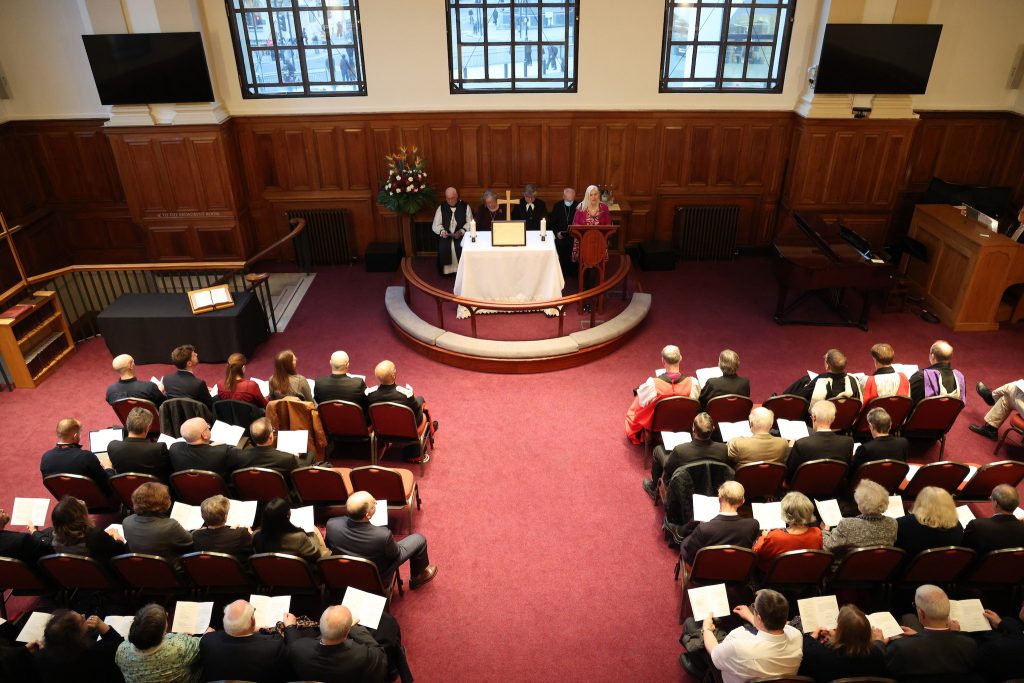In Westminster on All Saints’ Day in 2003, the Church of England and the Methodist Church in Britain signed a Covenant with one another: a formal agreement that remembers our intertwined history; repents of our past divisions; recognizes our full agreement today in all the essentials of the Christian faith; affirms each other’s churches, our worship, sacraments and ministries as being true and authentic manifestations of the one church of Jesus Christ; and commits our two churches to work ever more closely together as partners in God’s mission, and in sharing in Christian life with one another, in the hope that we will, at least in part, make more fully visible to the world the unity of Christ’s church.
On Monday 4 November, the Archbishops of Canterbury and York, and the President and Vice-President of the Methodist Conference gathered again in Westminster, with others, to celebrate the 21st anniversary of this Covenant—which stands to this day, though many question what it has really achieved.
Frustrations exist especially around the seeming lack of progress towards one of its aims: making ordained ministry interchangeable between our two churches. Whilst it can seem that nothing has happened, one of the joys of my own role is being engaged with work to enable that interchangeability to become a reality—building on extensive work on concrete proposals for this that has been done already in the background, and all because of this Covenant.

It takes time—indeed, as Archbishop Justin Welby and President-of-Conference Helen Cameron both emphasised, too long. There is a mixture of things that slow progress down: On the one hand, is what some might see as mere resistance to change, but which is equally about a proper and faithful concern to safeguard the richness and integrity of our two traditions. On the other hand is plain objection to some of the very features of, or recent developments within, each other’s tradition—but a crucial insight here is that each one of those things about either the Methodist Church or the Church of England that might seem objectionable to the other, is invariably a cause of difficulty within that Church itself; and there is much to be said for closer solidarity here. For me, God’s example in Jesus is to go and share the life of those who have problems, not to steer clear lest we be affected by them.
I believe that, in the extraordinary and ever-challenging grace of God, our two churches will indeed find our way more fully to embrace each other’s tradition, to share fully each other’s ordained ministry, and to realise the aims of the Anglican-Methodist Covenant in which we continue to live and work together—and in so doing, bear ever-stronger witness to that same grace, that the world may believe.
Read more about the Methodist Church’s National Ecumenical Officer Rev Steven Cooper.
Photo credits: Neil Turner for Lambeth Palace